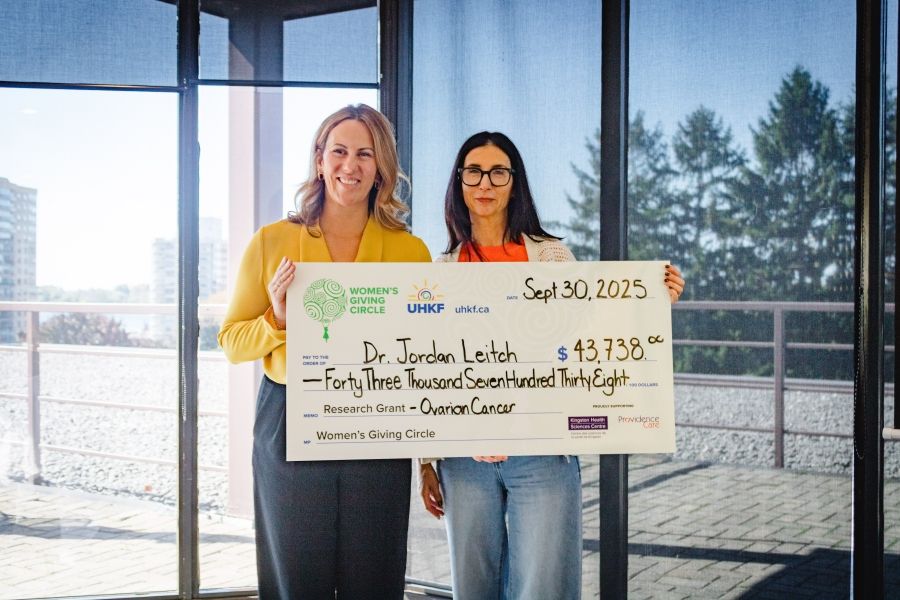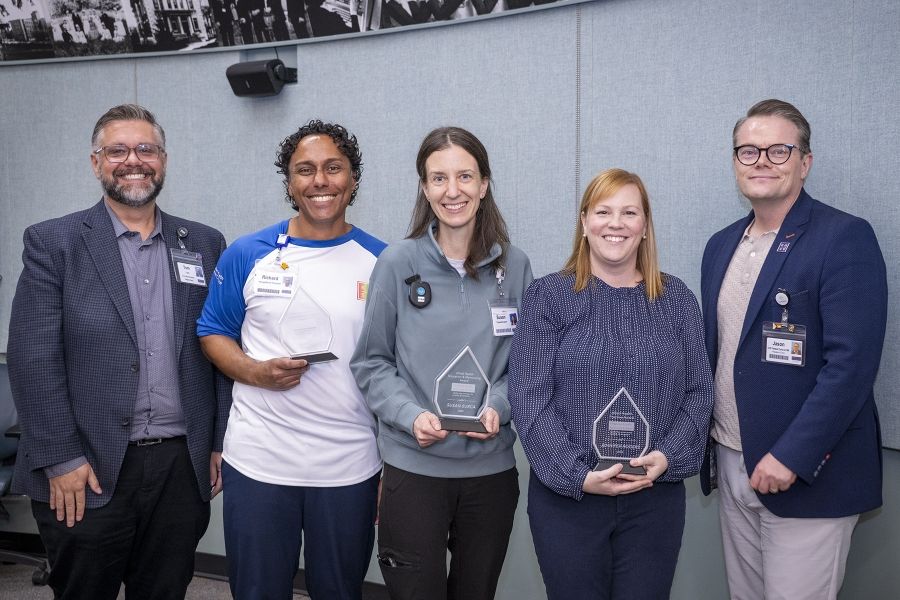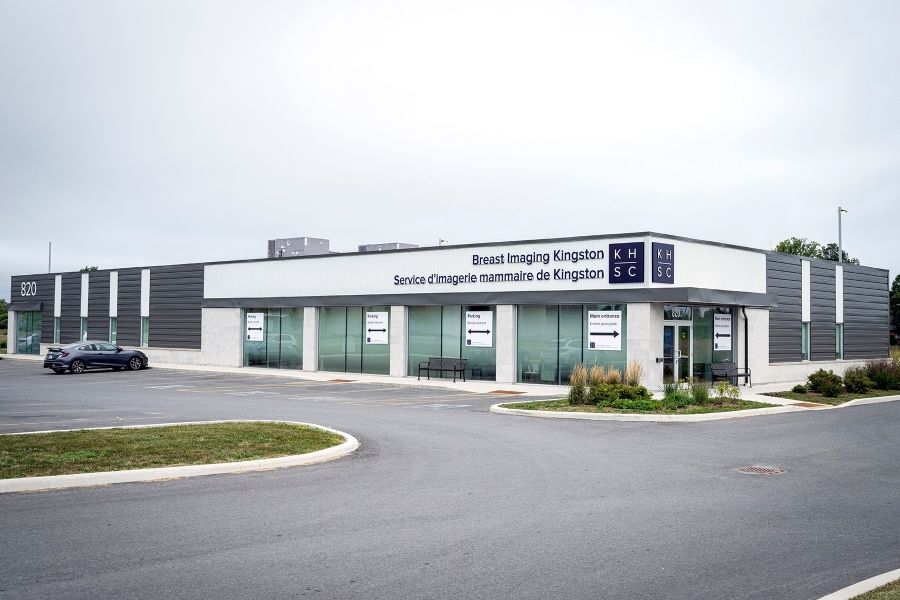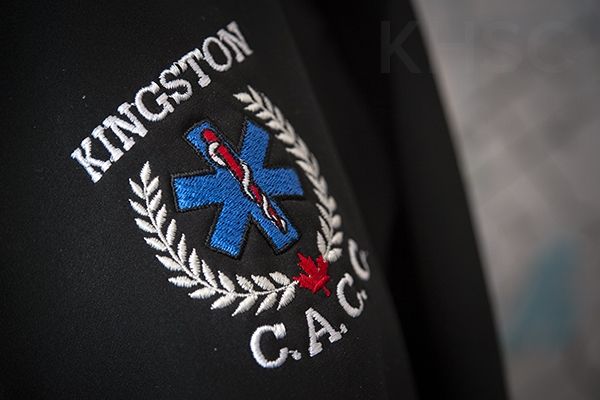
Over the telephone Matt Green can talk you through delivering a baby, performing CPR or preventing someone from choking to death. He starts by answering your 911 call for an ambulance but he could end up saving the life of someone you love.
An Ambulance Communications Officer (ACO), Matt is the person who stays on the line with you to obtain vital details for the emergency services en route and often to dispense life-saving instructions before paramedics even land on your doorstep. His role is unique: to be extraordinarily present to people who are nowhere near him.
Matt is one of 30 ACOs with our Kingston Central Ambulance Communications Centre (CACC) who are being celebrated for their skill and compassion this National Public Safety Telecommunicators Week. They are rightly called unseen heroes.
Located off site in a space dominated by a dimly-lit control centre full of colour-coded computer displays, CACC is proud to be part of KHSC and proud of its critical role in health care emergencies, says Director Mark Halladay.
“ACOs get information from distressed callers, provide first-aid instructions, coordinate emergency response vehicles and more,” he says. “They might hear all kinds of chaos in the background but they have to be the calm at the centre of the storm. They’re exactly who you want on the phone in a crisis.”
Last year, our ACOs played a role in 41 cardiac arrest “saves,” calls where a patient has no vital signs at some point before arriving at the hospital and is later released from hospital alive. They averaged the delivery of one baby per month before paramedics arrived on the scene, and saved seven choking patients over the phone. During the recent Code Silver in our Emergency Department, ambulances were routed away from the KGH site almost instantly due to the quick response of an ACO.
The crises are non-stop. In a 24-hour period, ACOs can handle 250-300 calls, including ones that would leave most of us at a loss for words.
“I’ve had calls from parents frantic about children with no vital signs and from people trying to harm themselves even as we talk,” says Matt. “My job is to keep the parents composed enough to begin CPR or to talk the person out of suicidal thoughts.
“We don’t have the advantage of body language so we rely strictly on what we’re saying and how we’re saying it. I have to follow a stringent protocol to get the location of the caller, the nature of the problem and the priority of the response. At the same time, I have to be calm and compassionate. Calling 911 means a person is having a bad or the very worst day of their lives. Keeping that in mind helps me to help them.”
ACOs alternate between call taking—talking people through a medical emergency—and dispatching, which involves strategically controlling the flow of land ambulances—up to 60 at peak times—from five paramedic services across 20,000 square kilometres of our region. They also manage communications between paramedics and other stakeholders such as hospitals, police, fire and ORNGE Air Ambulance.
Given all of the non-stop telephone activity—not to mention the stress that can come with it—the CACC control centre is eerily quiet, almost serene.
“You can’t deal with a crisis if everyone is in panic mode,” says Matt, “so we have a very calm and comforting environment.
“That also comes from having each other’s back. In a multi-casualty incident, everyone is involved—the dispatcher, call taker, supervisor. One person could never do it all. Knowing and trusting that we’re here for each other creates a strong sense of family.”
ACOs can be justly proud of their unique contribution to emergency services, says Mike McDonald, KHSC Chief Nursing Executive and Executive VP, Patient Care and Community Partnerships.
“They might talk with someone for only three minutes but it might be the most traumatic three minutes of that person’s life,” he says. “They can make a huge difference in a very short time.”
Matt Green agrees completely.
“I get the chance to be a reassuring presence in the lives of dozens of people every day,” he says. “I never thought this would be my dream job but I know it clearly is.”
Gallery
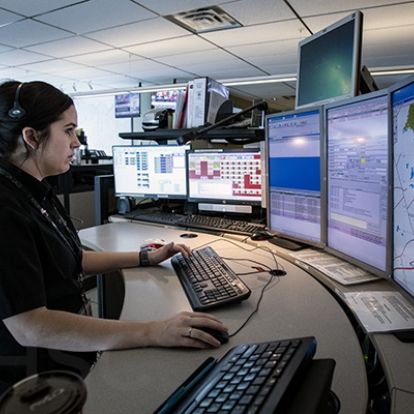
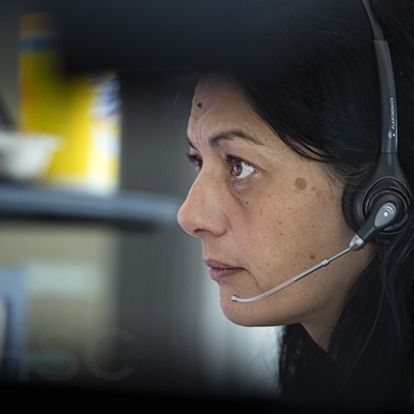
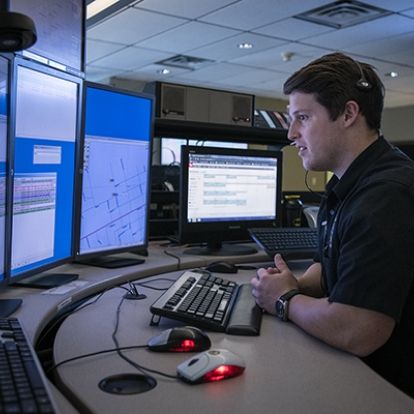
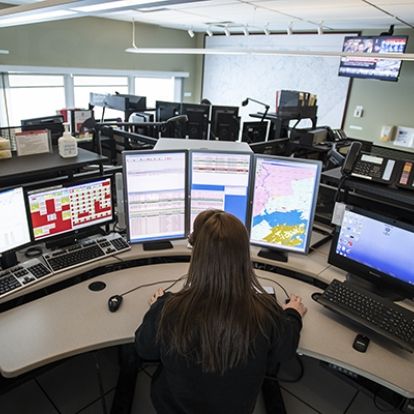
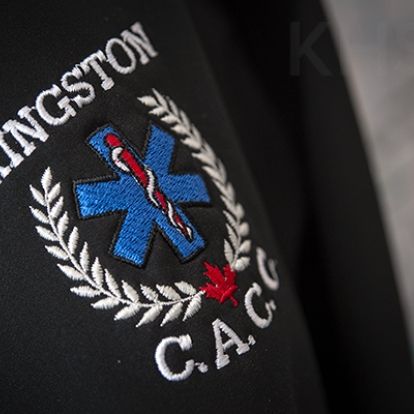
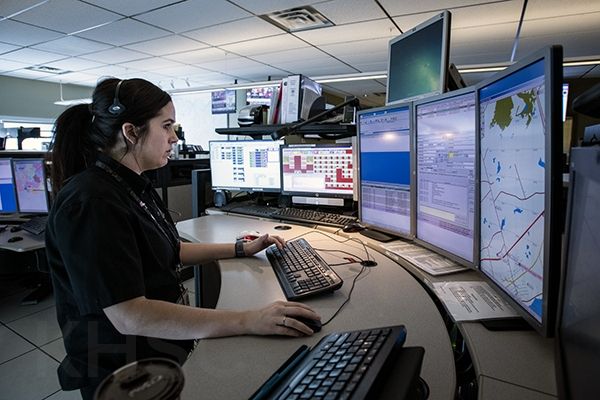
In this National Public Safety Telecommunicators Week (April 14-20), we thank our Ambulance Communications Officers (ACOs) at KHSC's Kingston Central Ambulance Communications Centre, who serve behind the scenes as FIRST first responders and play a critica
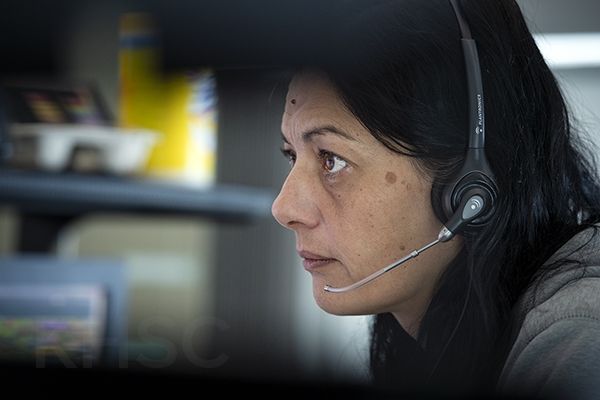
When you dial 911 for an ambulance, the ACO stays on the line with you to obtain details for the emergency services en route. Very often, though, an ACO dispenses life-saving instructions before paramedics even arrive at your door.
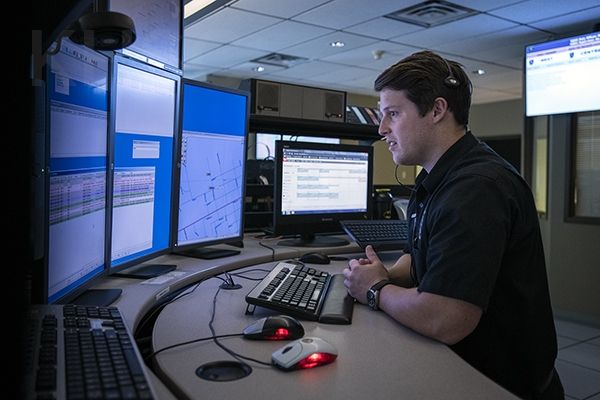
Calling 911 means a person is having a bad or the very worst day of their lives, says ACO Matt Green (above). Keeping that in mind helps him to help others.
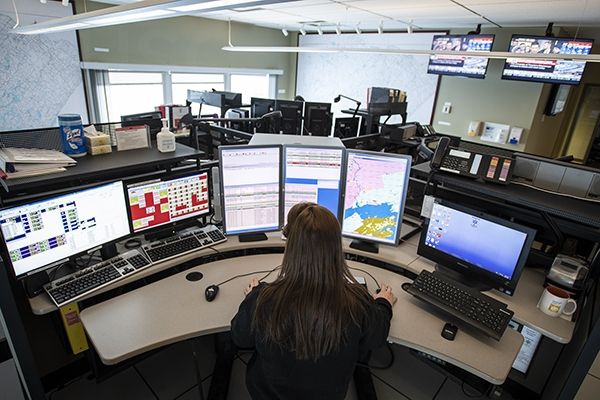
Given all of the non-stop telephone activity—not to mention the stress that can come with it—the control centre in the Kingston Central Ambulance Communications Centre is eerily quiet, almost serene. The calm and comfort carries through to distressed
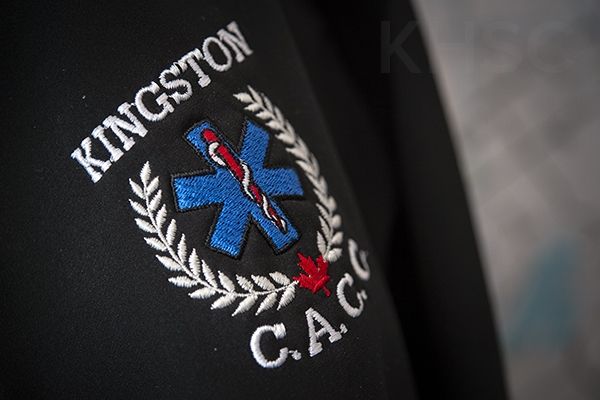
Over the telephone an ACO can talk you through delivering a baby, performing CPR or preventing someone from choking to death. This week, our Kingston Central Ambulance Communications Centre will honour ACOs who have saved a life or ushered a new one into

